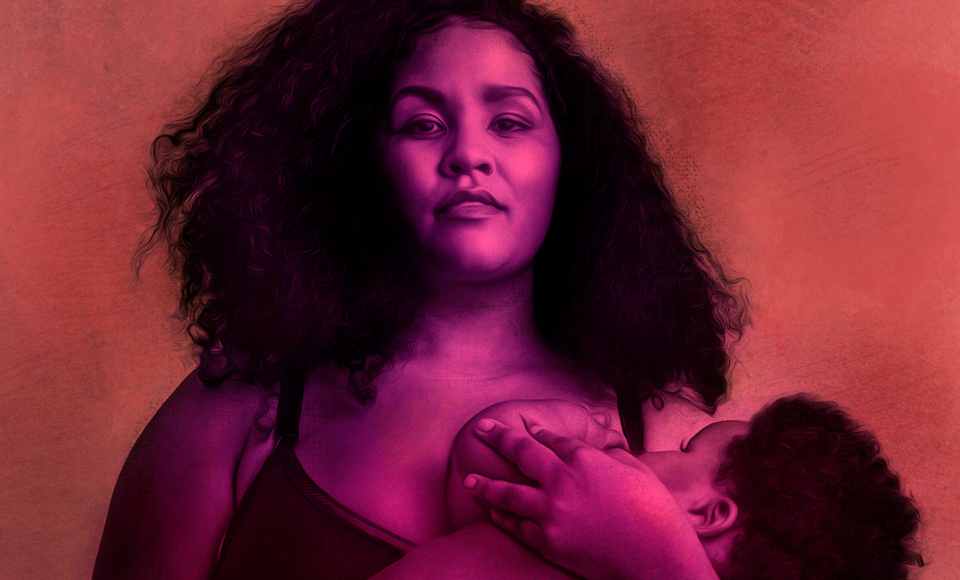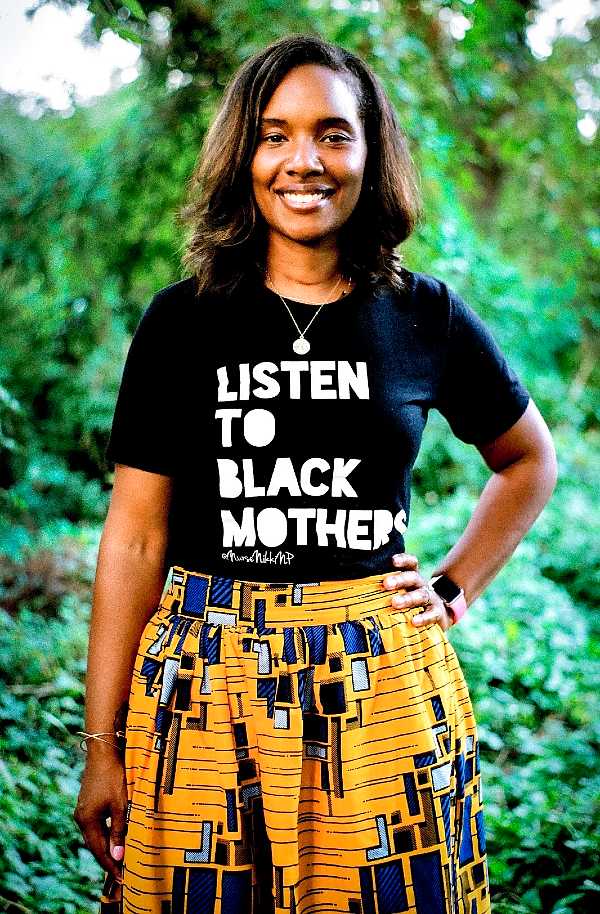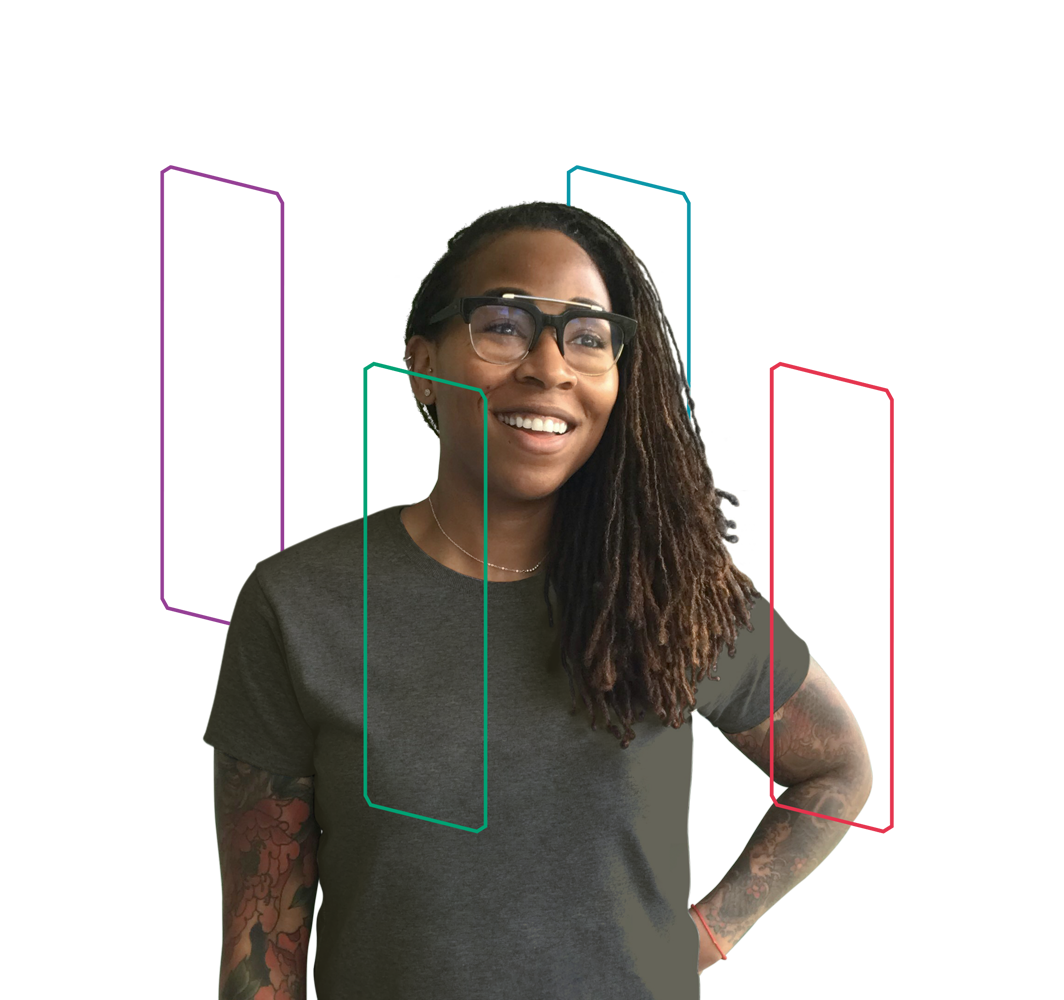Are you a skimmer?
No problem, we’ve got you! Take a spin through the list of interview highlights below, complete with timestamps to skip straight to the episode content that’s most relevant to you.
Introduction
The quote above gets straight to the heart of what our friend, Nikki Greenaway (affectionately known as “Nurse Nikki”), believes needs to change to make care equitable for Black mothers. She is working hard to remove the barriers these women face. From education on Instagram to home visits to personalized care packages, this medical MacGyver has found tons of creative ways to support the mamas in her community-based practice in New Orleans.
Nikki was featured in our first season of SHIFT Talk (listen to part 1 and part 2). So, Nacole and Nikki go way back, and together they truly have the gift of gab! While maternal health disparities are a serious topic, in typical SHIFT Talker style, the two manage to entertain and educate us at the same time. Nikki shares practical advice and resources that all nurses can use to address social determinants of health in their everyday practices.
Interview Highlights
(4:25)
Nikki on how her own postpartum experience inspired her to start a practice devoted to moms and moms-to-be: “I’ve taken care of babies my whole career. And then I had this baby of my own, and I’m like, ‘When is my shift over?!’”
Nikki had watched many women become moms, but it was different going through the journey herself. She had severe postpartum depression, and the kind of support she thought would help her pull through didn’t really exist — like care provided in her home instead of at the hospital, referrals to community organizations, and hands-on breastfeeding support. She shares how her brother inspired her to start a practice that offered just these things.
(7:30)
Nikki on the devastating maternal health statistics for Black women: “Black women are four to 12 times more likely to experience a maternal morbidity or mortality than White women of equal or lesser education or socioeconomic status.”
Nikki is a passionate advocate, raising awareness about the inequities Black women face and helping other providers understand the “why.” And guess what? Even Black mothers with PhDs have poorer health outcomes than White mothers. Nikki says we have to consider the long-term impact of racism, in addition to factors such as education, income, and housing.
(9:12)
Nikki explains that Louisiana is a maternity care desert and what that means: “It’s disheartening because over 95 percent of Louisiana is deemed a federally designated health professional shortage area. We need providers. We need a ton of providers.”
There are literally parts of New Orleans where there is no obstetric care — that’s right, none. Imagine driving two hours to get to your prenatal visits! And then multiply that by at least 12 for all the visits across a pregnancy. You start to see why a lot of women are “no-shows,” right? They’ve got kids to care for at home and jobs that don’t offer paid time off, not to mention transportation troubles.
(12:10)
Nikki on the women she cares for: “My patient population is really unique and it has some needs that other populations may not have, but also they’re often overlooked or dismissed.”
Nikki cares for, in her words, “young Black and Brown mothers” between the ages of 16 and 24 — some of them are still seeing a pediatrician themselves! And the majority have experienced homelessness, sexual and physical abuse, and poverty. Despite the fact that these women have faced and continue to face tremendous challenges, they are extremely resilient. And through her volunteer work in shelters when she was a teen, her studies in sociology and early career work in adolescent medicine, Nikki has become truly tuned in to their needs.
(15:19)
Nikki on providing nontraditional maternity care and support: “We go to safe houses. We go to homeless shelters. We go to places that most people don’t want to go to. I’m the postpartum bounty hunter.”
Nikki goes into detail about the creative, community-based support that she and her small staff provide. During COVID-19, she had to physically track down a mom at risk for preeclampsia and postpartum hypertension who was a “no-show” for her appointment. The mom wasn’t “noncompliant,” by the way — she just didn’t have child care for her other kids, and the COVID-19 visitor policy prevented her from bringing them with her to her appointment.
(20:21)
Nikki pushing all of us nurses to better understand our patients’ complete picture of health: “I want to challenge my colleagues and the people that want to do this work … to ask the hard questions … it’s the only way to help under-resourced parents.”
Nikki gets it — it’s not easy to ask patients questions about substance abuse, physical or emotional trauma, or even if they feel safe at home (and that question doesn’t even probe deeply enough, as you’ll learn in the interview). Nurses really care; they just don’t always know what to do with the answers. But that’s not a good enough reason not to ask. What’s so great about this interview is Nikki shares advice and resources that will help you learn how to ask —and answer — the tough questions and holistically support your patients.
(26:13)
Nikki on innovative ways to fund care: “One thing I will not do: I will not tap into this person’s Medicaid. I [will] not take insurance from them because I know that takes a visit or time away from another provider …”
Most of Nikki’s patients are on Medicaid, but she doesn’t use their insurance. Yes, you heard that right! The way that Medicaid is structured, if a woman sees Nikki, she can’t see another provider. And Nikki wants her patients to have all the care they need. So she’s gotten super creative, working through grants and government programs instead of insurance, never taking a dime (seriously, SHIFT Talkers, this is incredible!) from her patients. She even delivers monthly bundles of basics, like diapers and wipes, to all the women in her care.
(28:07)
Nikki on using Instagram to provide basic but much-needed women’s health education: “I absolutely love talking about taboo things … they’re only embarrassing because we feel like no one else…has leaky bladders, but they do.”
When she first started out, Nikki was hesitant about creating a public persona on social media. But she’s done an amazing job (7,600 Instagram followers and counting!). She knows what’s on women’s minds, especially mamas. And she shares answers to questions they’re sometimes too shy to ask. She uses fun visuals and shares simple, straightforward messages. She’s providing health and sex education that many underprivileged women don’t have the opportunity to receive elsewhere. (And to be real, we could probably all benefit from hitting the “follow” button on her handle!)
(31:40)
Nikki talks some shift with us about how other nurses can do more to understand and promote health equity: “We should go in with an equity lens … understanding and respecting their pronouns, what their needs are, and being able to provide individualized care, as opposed to trying to lump everybody together.”
Nacole and Nikki wrap with a long list of resources nurses can use to understand health equity and provide more equitable care — starting today. A couple of our favorites (full list below) include the National Birth Equity Collaborative and the Black Mamas Matter Alliance.



